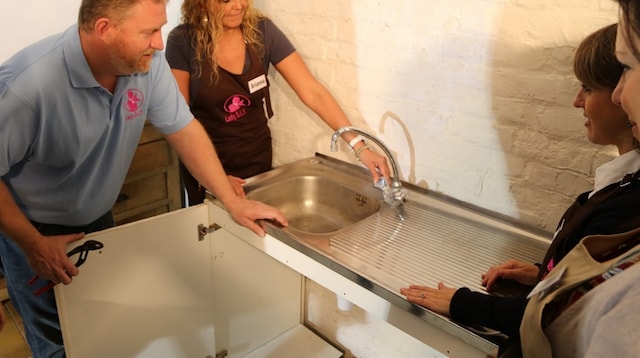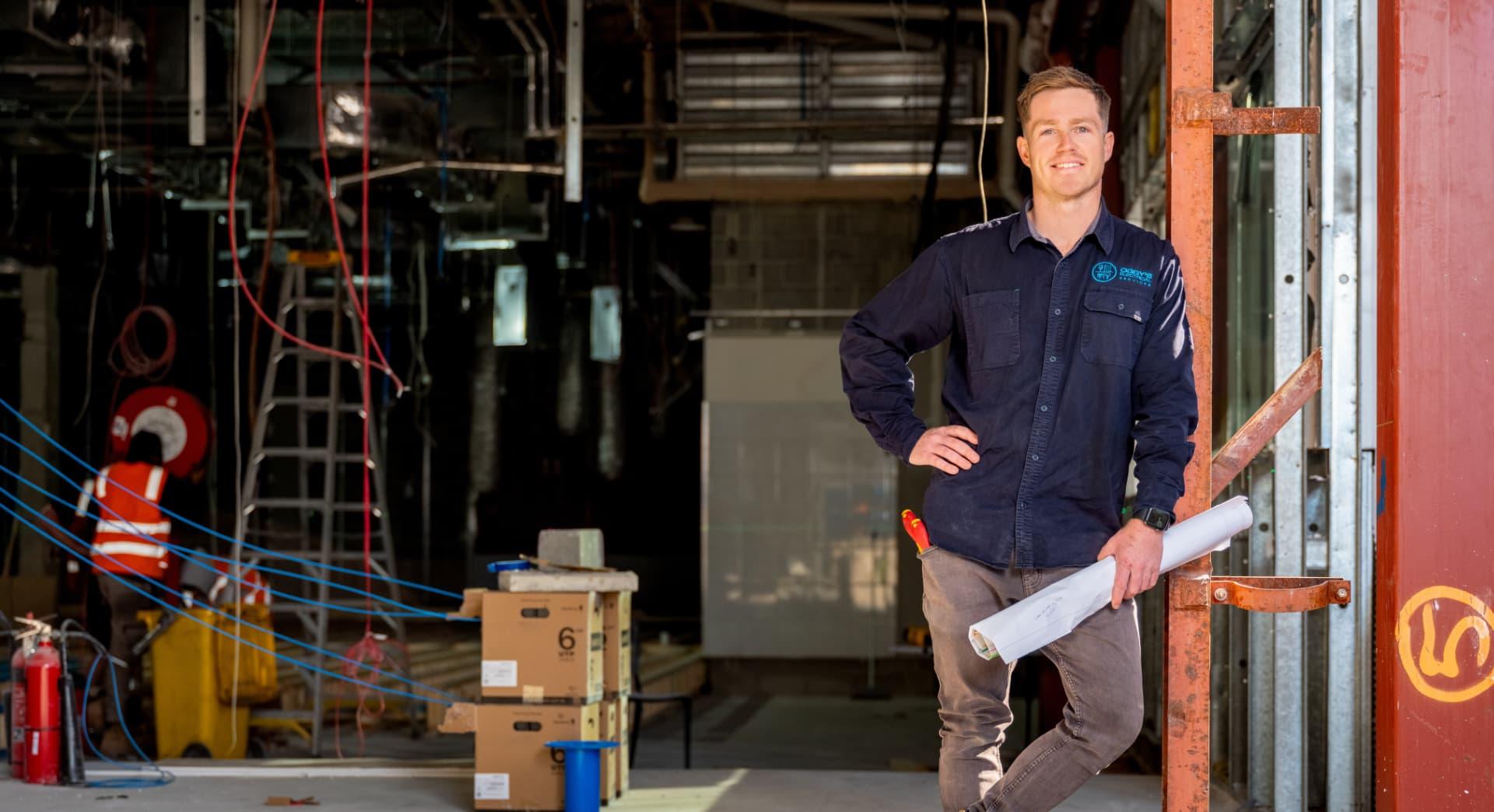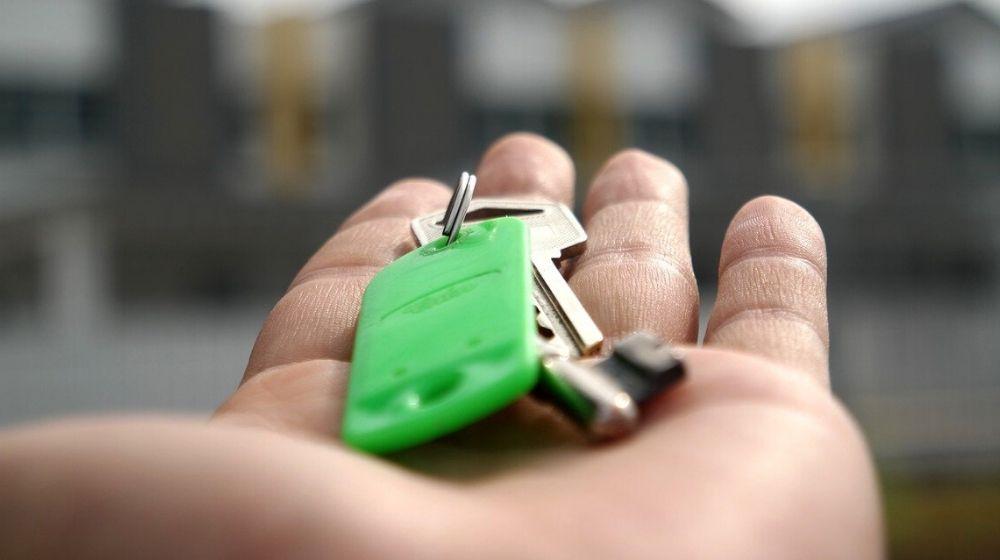If you’re keen to become a plumber, you might already know that you’ll need to complete an apprenticeship. But where can you find plumbing apprentice jobs?
To see the plumbing apprentice jobs open now, just search that term on Google.
The current level of plumbers is not meeting the work demand, creating a skills shortage and a desperate call for more trained plumbers to enter the workforce. This makes plumbing an ideal choice if you are interested in a building trade.
Related: 9 small business ideas you can start at home
What you’ll need to get a plumbing apprentice job
In order to become a plumber, you’ll need to do a four-year plumbing apprenticeship with an employer willing to invest in your on-the-job training.

There are certain things employers look for in their apprentices. Some of these include:
- Good English and math skills.
- An interest in the trades, with previous job experience (i.e. a part-time job working at a hardware store, manual labour or work with a building firm).
- Evidence of completing a course — receiving a year 10 or year 12 high school certificate, for example.
- A history of promptness and meeting deadlines.
- Some plumbing education, such as a Certificate II in plumbing or a pre-apprenticeship course.
Candidates who meet these requirements will be looked upon favourably as it shows a willingness to learn. An employer needs to be confident their chosen candidate is worth the time and outlay of funds.
The apprentice must also attend TAFE or a registered training organisation (RTO) to learn the skills needed to complete their Certificate III in Plumbing.
The training delivered in each state of Australia must comply with the Construction, Plumbing and Services Training Package.
This national training standard ensures plumbers are trained in all areas of plumbing and guarantees plumbers can work in each state of Australia.
Benefits of becoming a plumber
There are many perks to becoming a plumber — and a good salary is just one of them.

Keep in mind that a plumber’s wage can differ from state to state within Australia, and it should not be confused by what a plumber charges per-hour at a job site.
With that said, there are many other benefits to becoming a plumber:
Job security
While the work can be described as “feast or famine,” all plumbers agree the work will always be there. It’s not a job that can be erased due to new technology or robotics. People will always need plumbers.
Exclusive rights to work
Plumbing is a licensed trade, which means plumbing work cannot be performed without a license. This gives plumbers exclusivity to do the work they’ve been trained to do.
Plumbers can be their own boss
Most plumbers will choose to run their own businesses or work as subcontractors. Either way, they choose who they work for and what jobs they will or won’t take on.
No two jobs are the same
Plumbers face a variety of jobs and people, which keeps their work interesting. No two days are ever the same when you’re a plumber.
It’s physically and mentally challenging
Plumbing requires physical strength and mental alertness. Physical strength is built over time; it is mentally rewarding to find the solution to a plumbing problem.
No HECS debt
One of the biggest drawcards to becoming a plumber is graduating from an apprenticeship with no student loans or HECS debt. This makes it more than worth the four-year apprenticeship.
Low overhead
Plumbers need their tools and a ute. While this requires an outlay of cost during an apprenticeship, once plumbers have their licenses, they can have an office at home.
Some plumbing businesses outgrow the home office and lease a space with a warehouse to store plumbing gear. But when most plumbers start out, the overhead is minimal.
Related: Find more customers with these 5 marketing strategies
How to get a plumbing license
Upon completing a four-year plumbing apprenticeship, the graduating apprentice will have:
- A Certificate III in Plumbing.
- A log book of job competencies signed by their RTO and employer.
At this point, the graduating apprentice will be able to get their provisional plumbing license from the relevant licensing authority in their state. This license allows the plumber to go to work for a plumbing company or work on their own.

Where to apply for a license
To apply for a plumbing license, an applicant must be registered to the governing licensing body in the state(s) where they plan to work. Check these links for details:
- QLD: Queensland Building and Construction Commission
- NSW: NSW Fair Trading
- VIC: Victorian Building Authority
- ACT: Access Canberra
- TAS: Consumer, Building and Occupational Services
- SA: Government of South Australia
- WA: Government of Western Australia, Department of Mines, Industry Regulation and Safety
- NT: Plumbers and Drainers Licensing Board
It’s a proud day when a plumbing apprentice receives their plumbing license.
Those who decide to work solo
Plumbers who chooses to run their own businesses will also need a supervisor or contractor’s license. This license gives plumbers the freedom to run for tender on plumbing jobs and even supervise other plumbers. They can also choose to put on a plumbing apprentice of their own.
Each state in Australia will have different requirements on what needs to be completed to get this license. You can search here to find out more.
Related: Search engine marketing for service businesses
Four years of training, a lifetime of work
The biggest hurdle to becoming a plumber is getting a plumbing apprenticeship and committing to the four years of training and learning.
Once your training is complete, plumbing opens a world of opportunity.
Licensed plumbers can work in many different sectors, including:
- Government.
- Town planning.
- Hydraulic consulting.
- Property inspections.
If you’re willing to commit to the training involved, this career can be yours.






